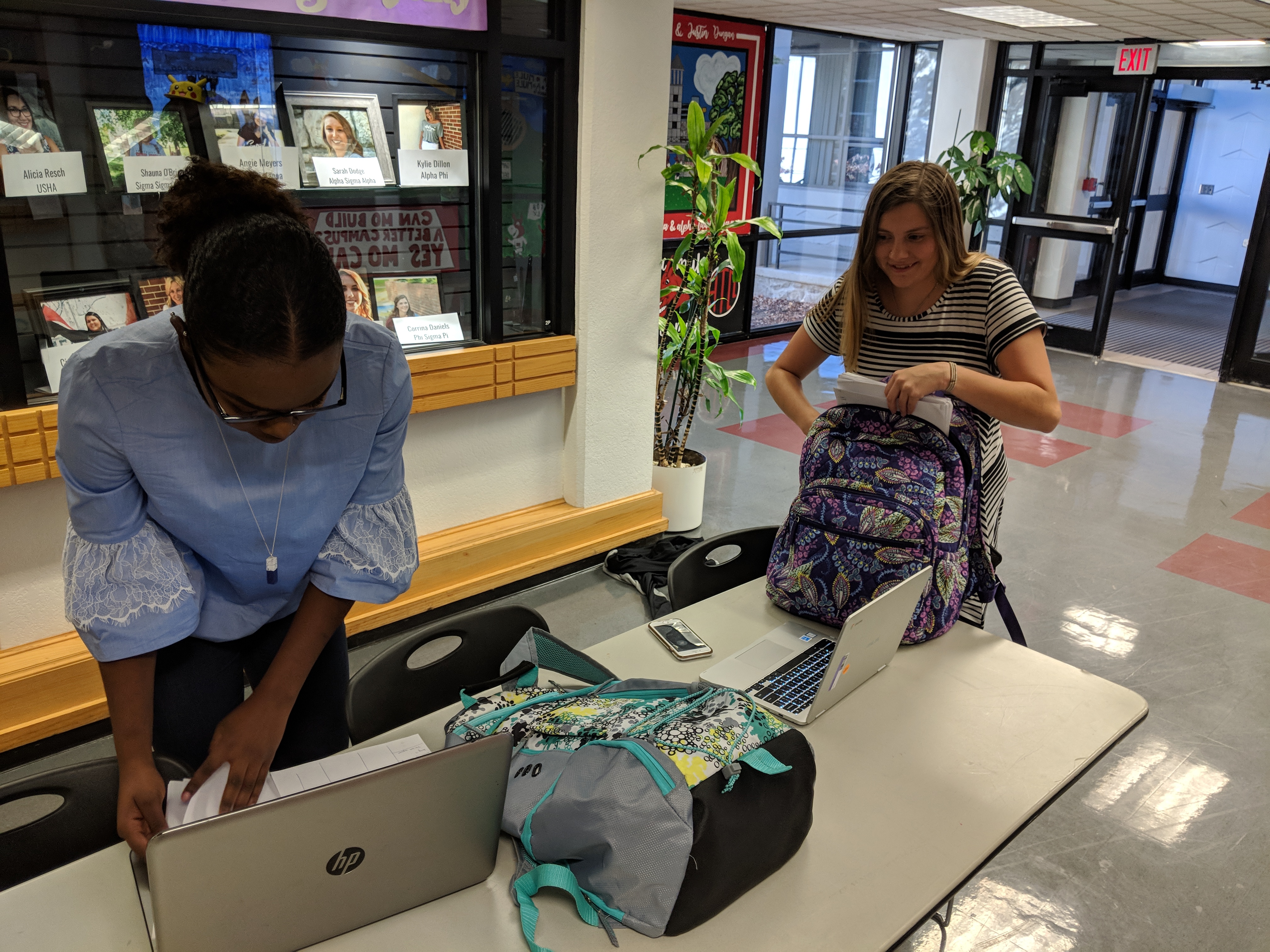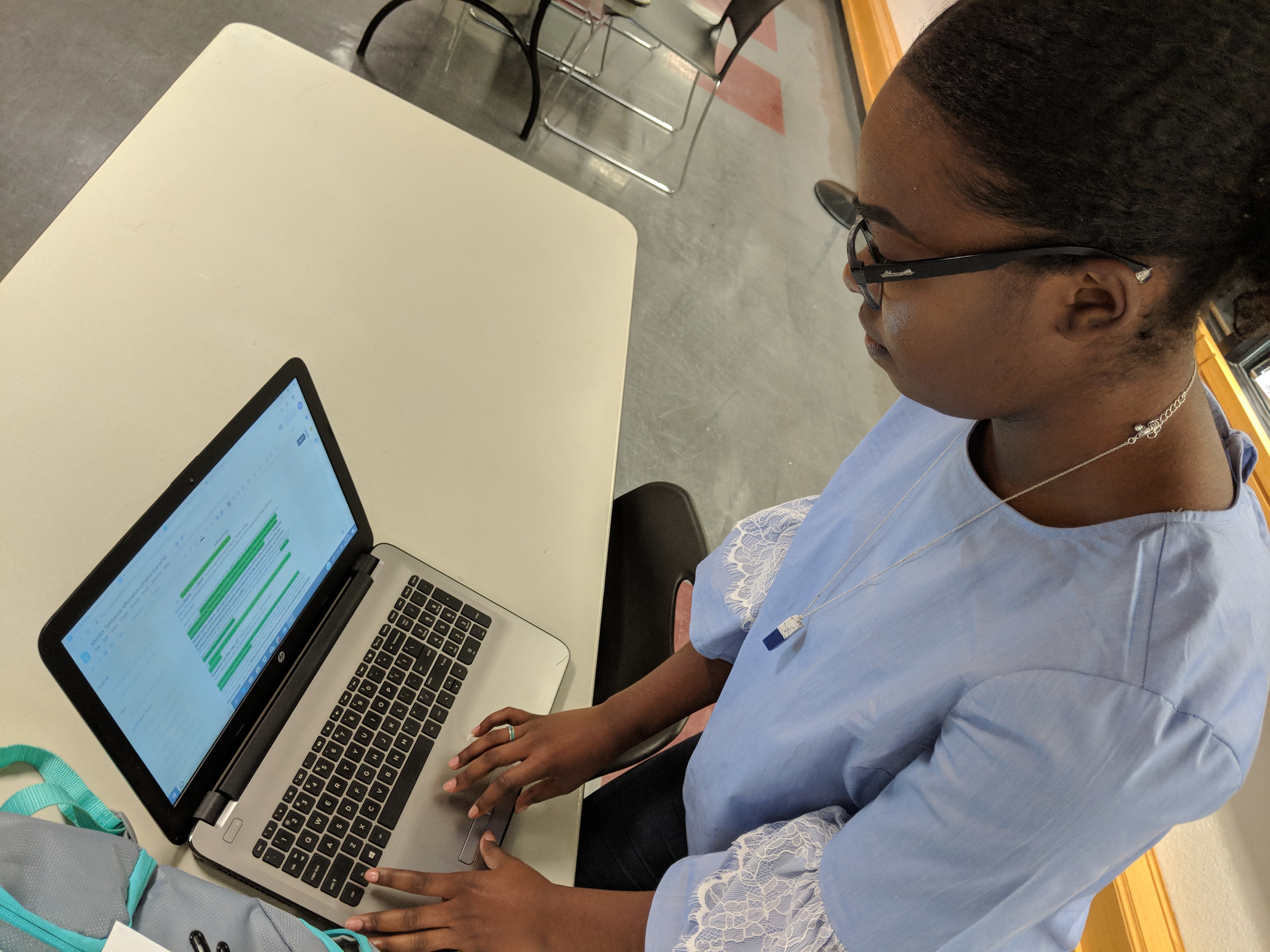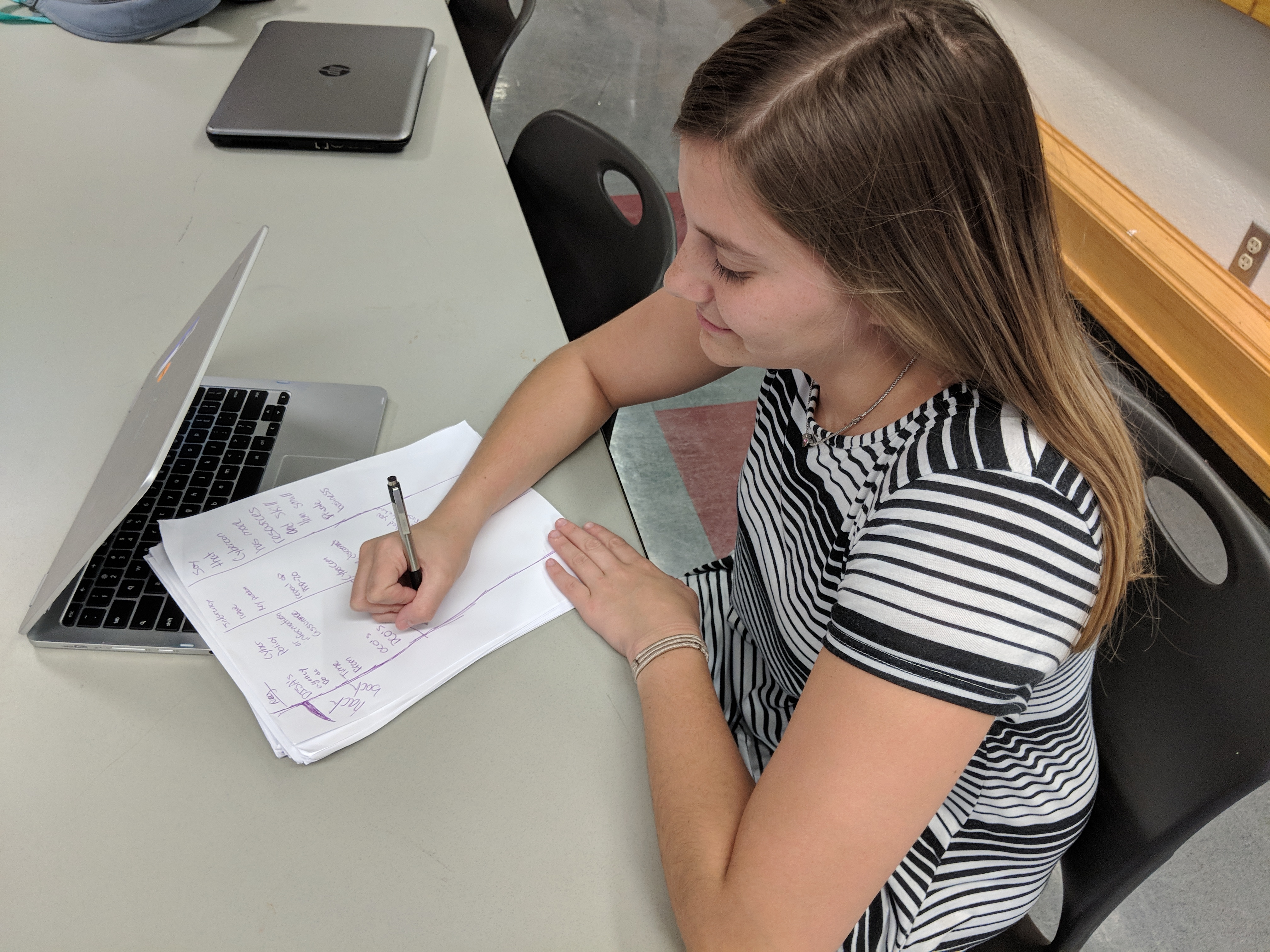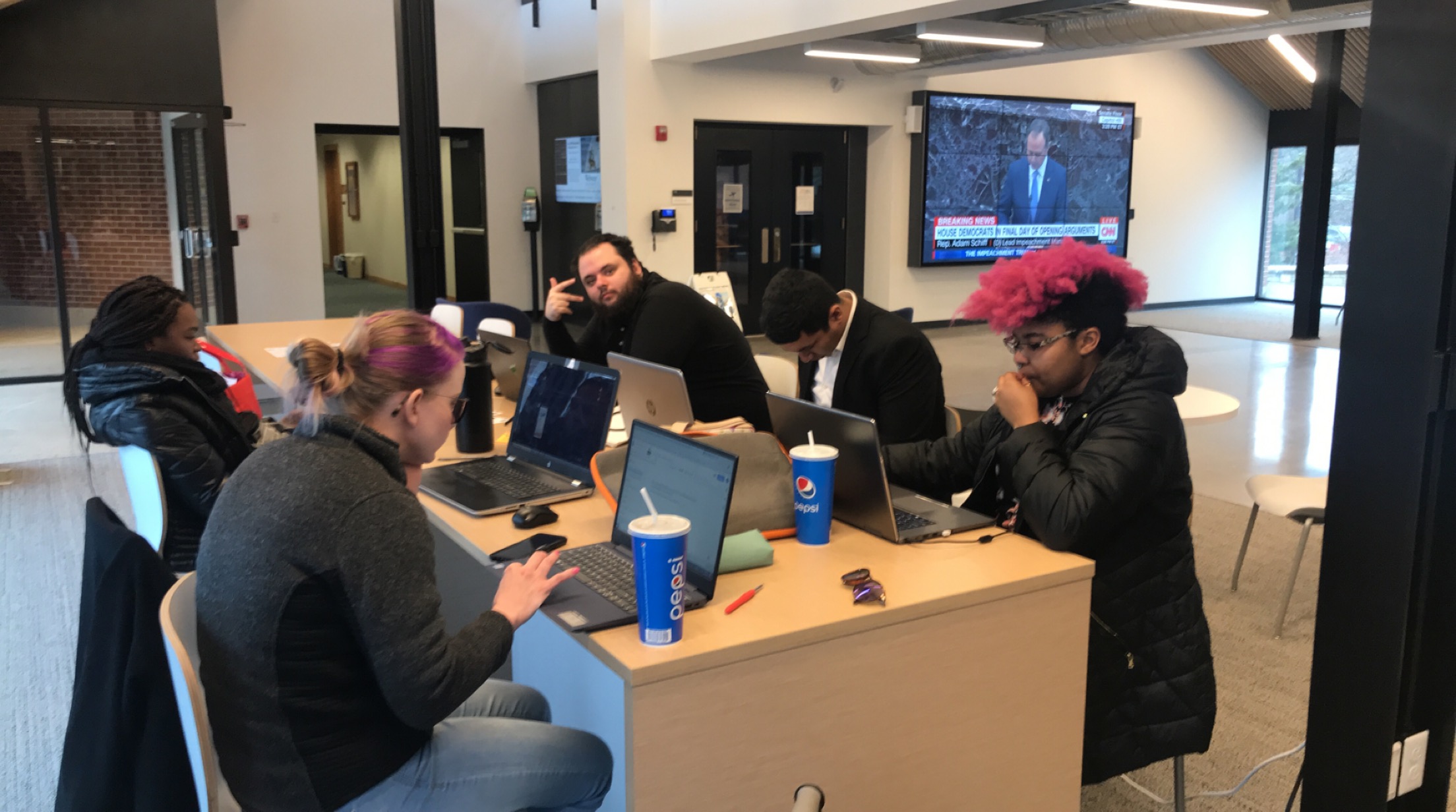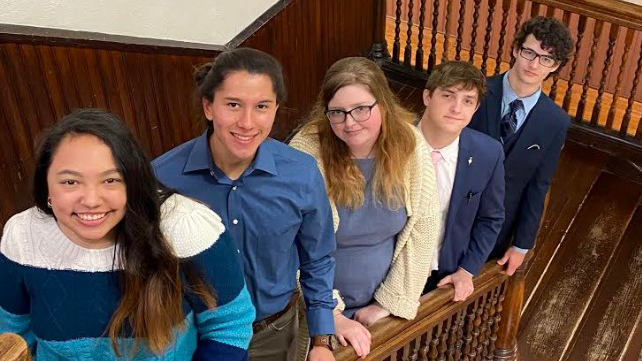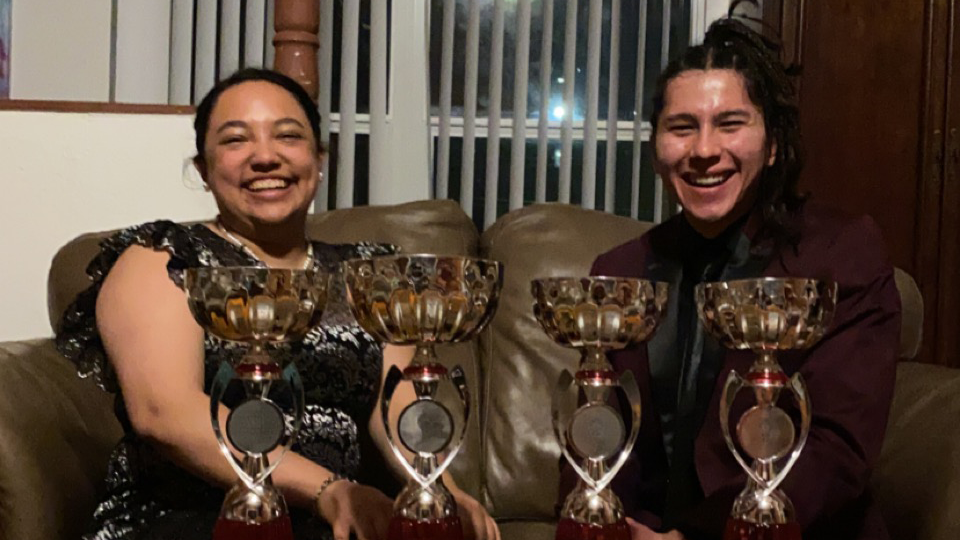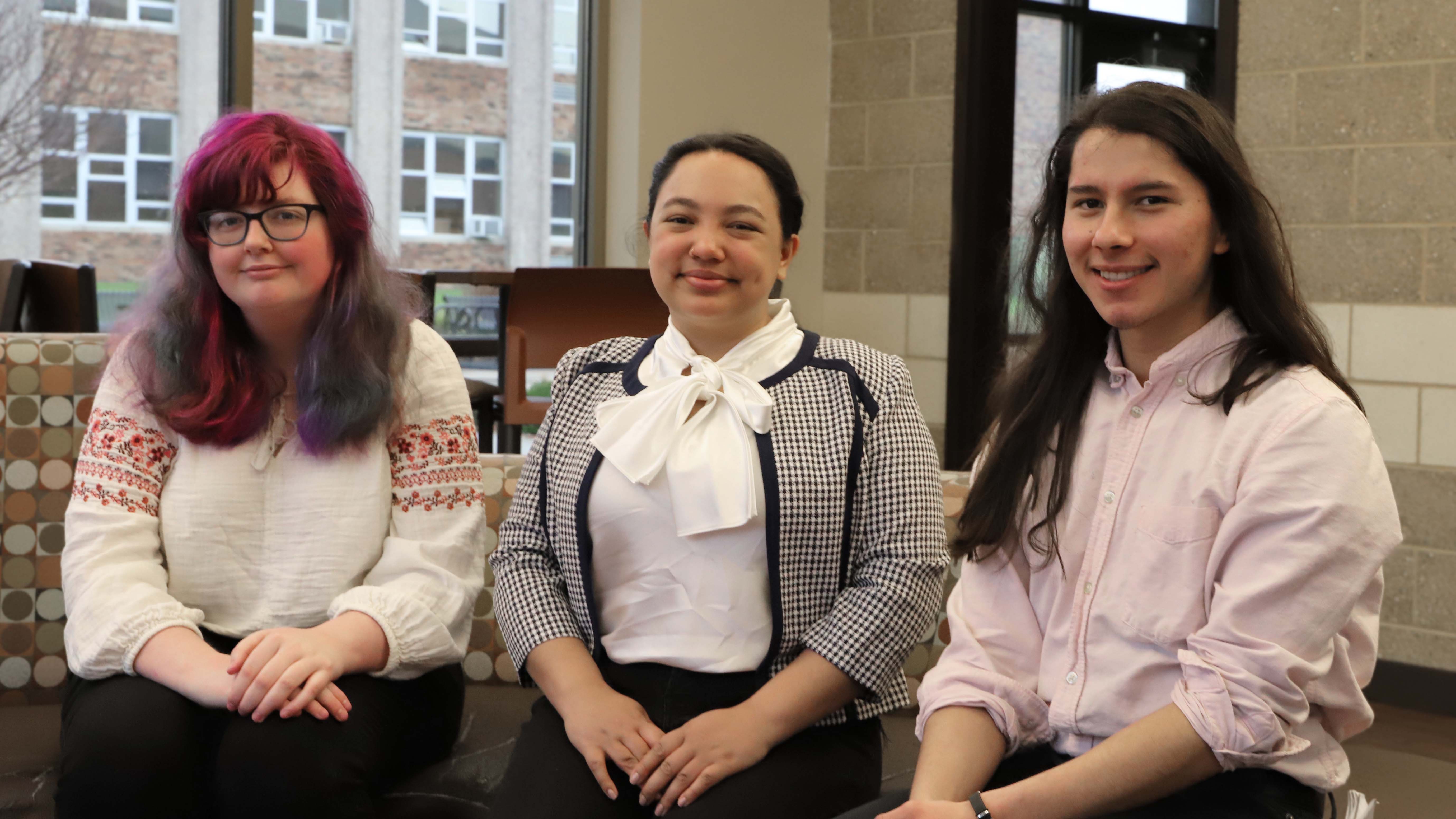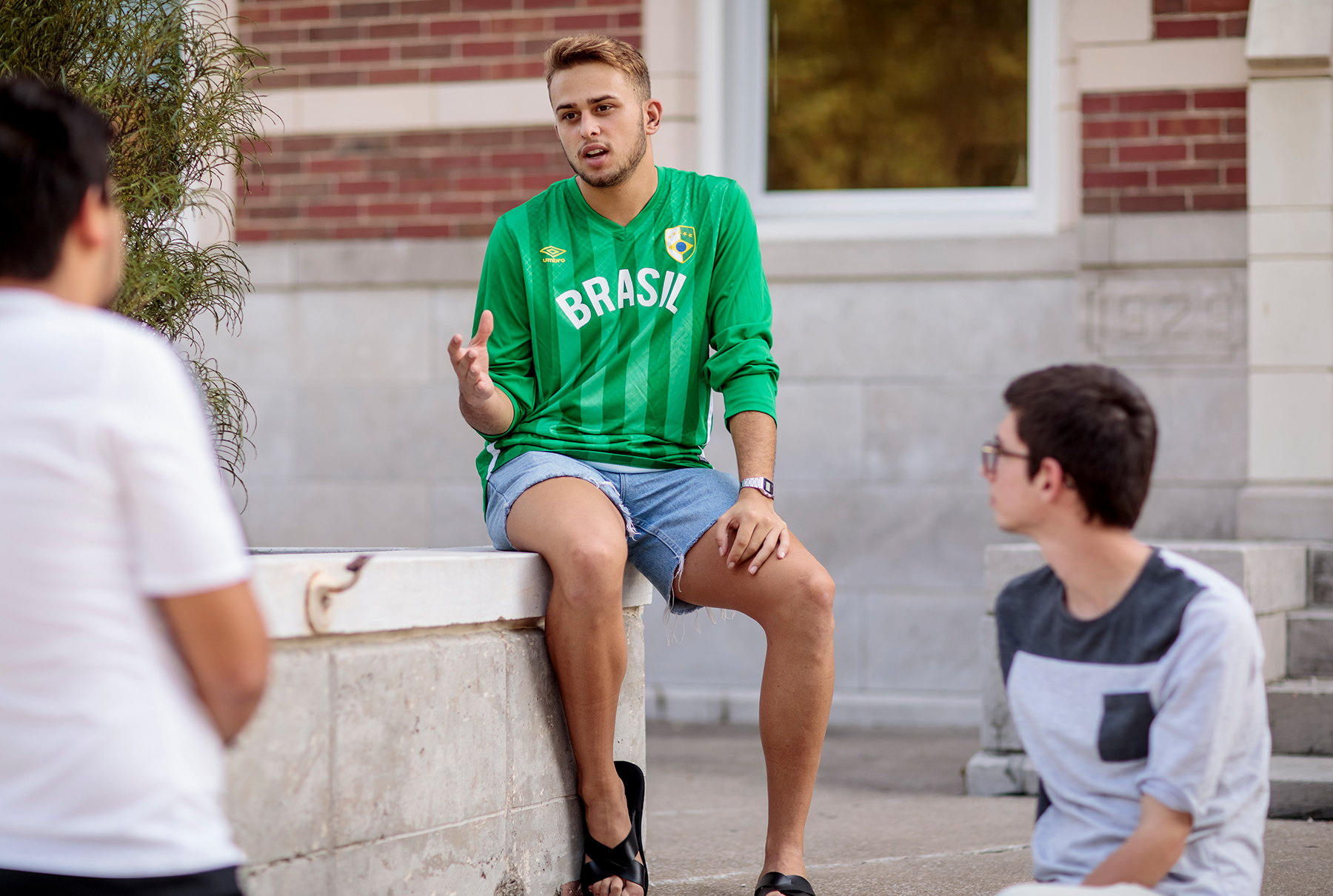Flight A Events
Dramatic Duo: A cutting from one or more texts of literary merit, humorous or serious, involving the portrayal of two or more characters presented by two individuals. The material may be drawn from any genre of literature. This is not an acting event; thus, no costumes, props, lighting, etc, are to be used. Presentation is from the manuscript and the focus should be off-stage and not to each other. Maximum time limit is 10 minutes including introduction.
Extemporaneous Speaking: Contestants will be given three topics in the general area of current event, choose one, and have 30 minutes to prepare a speech that is the original work of the student. Maximum time limit for the speech is 7 minutes. Limited notes are permitted. Student will speak in listed order. Postings of topics will be staggered.
Informative Speaking: An original, factual speech by the student on a realist subject to fulfill the general aim to inform the audience. Audio-visual aids may or may not be used to supplement and reinforce the message. Multiple sources should be used and cited in the development of the speech. Minimal notes are permitted. Maximum time is 10 minutes.
Flight B Events
Impromptu Speaking: An impromptu speech, substantive in nature, with topic selections varied by round and by section. Topics will be derived from quotations. Speakers will have a total of 7 minutes for both preparation and speaking. Timing commences with the acceptance of the topics sheet. Limited notes are permitted.
Persuasive Speaking: An original speech by the student designed to inspire, reinforce, or change the beliefs, attitudes, values or actions of the audience. Audio-visual aids may or may not be used to supplement and reinforce the message. Multiple sources should be used and cited in the development of the speech. Minimal notes are permitted. Maximum time limit is 10 minutes.
Program Oral Interpretation: A program of thematically-linked selections of literary merit, chosen from two or three recognized genres of competitive interpretation (prose/poetry/drama). A primary focus of this event should be on the development of the theme through the use of narrative/story, language, and/or characterization. A substantial portion of the total time must be devoted to each of the genres used in the program. Different genre means the material must appear in separate pieces of literature ( e.g., A poem included in a short story that appears only in that short story does not constitute a poetry genre.) Only one selection may be original. Use of manuscript is required. Maximum time limit is 10 minutes including introduction.
Prose Interpretation: An original or selections of prose material of literary merit, which may be drawn from more than one source. Focus of this event is on the development of the narrative/story. Play cuttings and poetry are prohibited. Use of manuscript is required. Maximum time is 10 minutes including introduction.
Flight C Events
After Dinner Speaking: An original, humorous speech by the student, designed to exhibit sound speech composition, thematic, coherence, direct communicative public speaking skills, and good taste. The speech should not resemble a night club act, an impersonation, or comic dialogue. Audio-visual aids may or may not be used to supplement and reinforced the message. Minimal notes are permitted. Maximum time limit is 10 minutes.
Communication Analysis: An original speech by the student designed to offer an explanation and/or evaluation of a communication event such as a speech, speaker, movement, poem, poster, film, campaign, etc., through the use of rhetorical principles. Audio-visual aids may or may not be used to supplement and reinforce the message. Manuscripts are permitted. Maximum time limit is 10 minutes.
Drama Interpretation: A cutting that represents one or more characters from a play or plays of literary merit. The focus of this event is on the development of characterization. This material may be drawn from stage, screen, or radio. Use of manuscript is required. Maximum time limit is 10 minutes including introduction.
Poetry Interpretation: A selection or selections of poetry of literary merit, which may be drawn from more than one source. A primary focus of this event should be on the development of language. Play cuttings and prose works are prohibited. Use of manuscript is required. Maximum time limit is 10 minutes including introduction.
